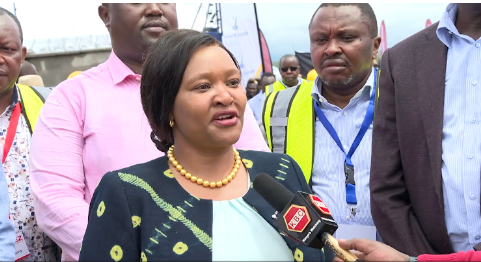The EU-Kenya Economic Partnership Agreement (EPA) entered into force on July 1, 2024, marking a significant milestone for Kenya’s exports. This agreement allows Kenyan exports to enter the 27-member European Union market duty-free. It expands Kenya’s market reach to approximately 500 million consumers in the EU. In return, Kenya has committed to gradually opening its markets to EU products over a 25-year period.
Rebecca Miano, the Cabinet Secretary for Investments, Trade, and Industry, confirmed the implementation of the EPA in a statement on Monday. Under this agreement, Kenya will enjoy duty-free and quota-free access to the EU market for all its exports, which include products such as coffee, flowers, and minerals. This development is expected to enhance trade relations between Kenya and the EU, facilitating increased exports and economic growth opportunities for the country.
“The agreement will boost bilateral trade in goods, increase investment flows, strengthen the ties between reliable partners, and facilitate mutually advantageous economic relations sustainably, stimulating job creation and economic growth,” said Miano.
According to the Cabinet Secretary, the EU-Kenya EPA represents the most ambitious trade deal negotiated with an African nation, emphasizing sustainability and serving as a potential model for future agreements. This comprehensive agreement includes binding provisions on labor standards, gender equality, environmental protection, and combating climate change.
Kenya, as East Africa’s primary economic center, stands to benefit significantly from enhanced trade relations with the European Union. The EPA is expected to unlock new economic opportunities, especially since the EU is Kenya’s largest export destination and its second-largest trading partner. In 2023, total trade between the EU and Kenya reached €3 billion (approximately Sh415.8 billion), marking a 16% increase from 2018.
According to the Economic Survey 2024 by the Kenya National Bureau of Statistics, Kenya’s exports to the European Union saw a notable 12.7% improvement in 2023, rising from Sh133.2 billion in 2022.
This growth was driven in part by increased exports of cut flowers and avocados to the Netherlands, as well as beans to France. Similarly, earnings from exports to the United Kingdom increased from Sh44.6 billion in 2022 to Sh54.7 billion in 2023, largely due to higher exports of tea and cut flowers.
The European Union remains a crucial market for Kenya’s flower production, with over 70% of the country’s flowers heading to EU countries. These developments underscore the potential economic benefits and growth opportunities stemming from the EU-Kenya Economic Partnership Agreement.
The Economic Partnership Agreement (EPA) between the EU and Kenya is poised to significantly benefit Kenyan businesses and exporters by fully opening up the EU market for Kenyan products. This move is expected to stimulate EU investment in Kenya, driven by enhanced legal certainty and stability under the agreement.
Since the EPA came into effect, Kenya has also imported products worth €2 billion (approximately Sh306 billion), marking a growth of about a quarter since 2019. This growth underscores the expanding economic ties between Kenya and the EU.
Under the EPA, Kenyan businesses and exporters must adhere to agreed standards for the European market, which are designed to attract further EU investment into Kenya.
Currently, Kenya’s exports to the EU primarily include coffee, cut flowers, tea, and vegetables. Meanwhile, imports from the EU to Kenya encompass machinery, mechanical appliances, equipment and parts, vehicles, and pharmaceutical products.
The EPA, concluded in June 2023 and signed by both parties on December 18, aims to implement provisions of the EU-East African Community (EAC) EPA. The agreement also remains open for other EAC countries to join, potentially expanding its scope and benefits across the region.
This development sets the stage for increased economic cooperation and mutual growth opportunities between Kenya and the European Union.



